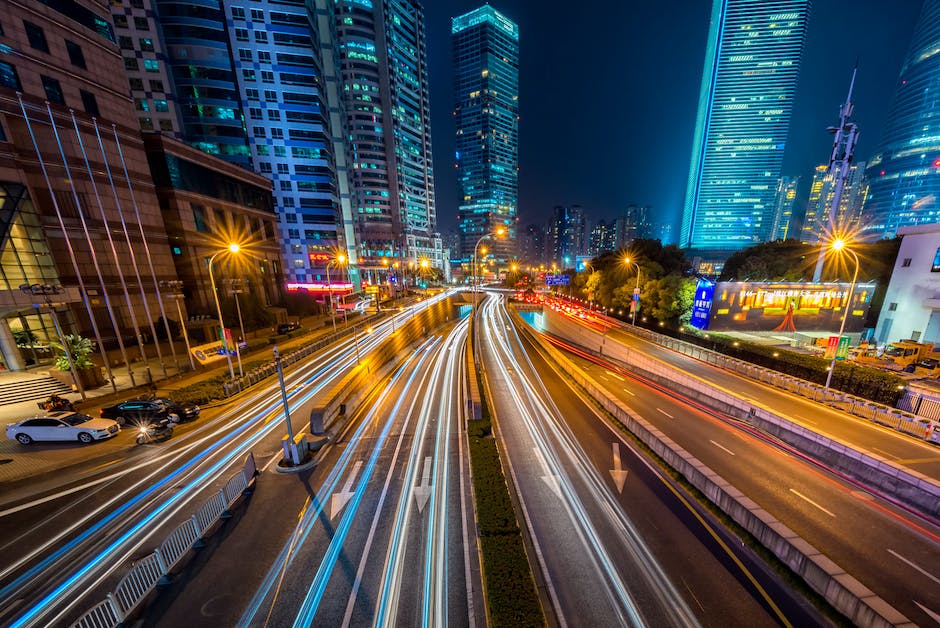Table of Contents
“Empowering Arab Leaders to Forge the Path towards Smart Cities of Tomorrow”
Introduction
Arab leaders are playing a crucial role in shaping the future of smart cities. With rapid urbanization and technological advancements, Arab countries are embracing the concept of smart cities to enhance the quality of life for their citizens. These leaders are implementing innovative strategies, investing in advanced technologies, and fostering collaborations to create sustainable, efficient, and interconnected urban environments. By prioritizing smart city initiatives, Arab leaders are paving the way for a future where technology and urban development go hand in hand, ultimately transforming the way people live, work, and interact in their cities.
The Role of Arab Leaders in Advancing Smart Cities

The Role of Arab Leaders in Advancing Smart Cities
Smart cities are the future of urban development, and Arab leaders are at the forefront of this movement. With their vision and commitment to innovation, they are shaping the future of smart cities in the Arab world. Arab leaders understand the potential of smart cities to improve the quality of life for their citizens and drive economic growth.
One of the key roles of Arab leaders in advancing smart cities is creating a conducive environment for innovation and technology. They are investing in infrastructure, promoting research and development, and fostering collaboration between the public and private sectors. By providing the necessary resources and support, Arab leaders are enabling the development and implementation of smart city solutions.
Furthermore, Arab leaders are actively engaging with technology companies and startups to drive innovation in smart cities. They are partnering with these organizations to develop and deploy cutting-edge technologies that can enhance the efficiency and sustainability of urban areas. By leveraging the expertise and resources of these companies, Arab leaders are accelerating the transformation of their cities into smart cities.
In addition to fostering innovation, Arab leaders are also focusing on the social and environmental aspects of smart cities. They understand that a truly smart city is not just about technology, but also about creating a livable and sustainable environment for its residents. Arab leaders are investing in renewable energy, waste management systems, and green infrastructure to reduce the environmental impact of urbanization.
Moreover, Arab leaders are prioritizing the needs and aspirations of their citizens in the development of smart cities. They are involving the community in decision-making processes and ensuring that the benefits of smart city initiatives are accessible to all. Arab leaders are working towards creating inclusive and equitable smart cities that cater to the diverse needs of their populations.
Another crucial role of Arab leaders in advancing smart cities is promoting digital literacy and skills development. They recognize that for smart cities to thrive, their citizens need to be equipped with the necessary digital skills. Arab leaders are investing in education and training programs to ensure that their citizens are prepared for the digital future. By empowering their citizens with digital literacy, Arab leaders are enabling them to fully participate in the smart city ecosystem.
Furthermore, Arab leaders are collaborating with international organizations and other countries to share best practices and learn from each other’s experiences. They are participating in conferences, workshops, and knowledge-sharing platforms to exchange ideas and insights on smart city development. By fostering international cooperation, Arab leaders are ensuring that their cities benefit from global expertise and innovation.
In conclusion, Arab leaders are playing a crucial role in shaping the future of smart cities. Through their vision, investment, and collaboration, they are driving innovation, sustainability, and inclusivity in urban development. Arab leaders understand that smart cities are not just a technological revolution, but also a social and environmental transformation. By prioritizing the needs of their citizens and engaging with the global community, Arab leaders are paving the way for a smarter and more sustainable future.
Innovations and Technologies Driving Smart City Development in the Arab World
The Arab world is rapidly embracing the concept of smart cities, with leaders in the region recognizing the potential of technology to transform urban living. As a result, there has been a surge in innovations and technologies driving smart city development in the Arab world. These advancements are not only improving the quality of life for residents but also positioning the region as a global leader in urban innovation.
One of the key drivers of smart city development in the Arab world is the increasing adoption of Internet of Things (IoT) technology. IoT refers to the network of interconnected devices that collect and exchange data. In smart cities, IoT technology is used to monitor and manage various aspects of urban life, such as transportation, energy consumption, and waste management. Arab leaders have recognized the potential of IoT to enhance efficiency and sustainability in their cities, and as a result, have been investing heavily in IoT infrastructure.
For example, Dubai, one of the leading smart cities in the Arab world, has implemented a comprehensive IoT network that connects various devices and sensors across the city. This network enables real-time monitoring of traffic flow, energy consumption, and air quality, among other things. By analyzing this data, city officials can make informed decisions to improve urban planning and resource allocation.
Another technology driving smart city development in the Arab world is artificial intelligence (AI). AI refers to the ability of machines to perform tasks that would typically require human intelligence. In smart cities, AI is used to analyze vast amounts of data collected by IoT devices and make predictions or recommendations based on this analysis. Arab leaders have recognized the potential of AI to improve the efficiency and effectiveness of urban services.
For instance, Riyadh, the capital city of Saudi Arabia, has implemented an AI-powered traffic management system. This system uses AI algorithms to analyze real-time traffic data and optimize traffic flow by adjusting traffic signals and suggesting alternative routes to drivers. As a result, congestion has been reduced, and travel times have improved significantly.
In addition to IoT and AI, renewable energy technologies are also playing a crucial role in shaping the future of smart cities in the Arab world. With the region’s abundant sunlight and wind resources, Arab leaders have been investing in renewable energy infrastructure to power their cities sustainably. Solar panels and wind turbines are being integrated into the urban landscape, providing clean and reliable energy for smart city operations.
For example, Masdar City in Abu Dhabi is a prime example of a smart city powered by renewable energy. The city is entirely carbon-neutral, thanks to its extensive use of solar panels and wind turbines. The integration of renewable energy technologies not only reduces carbon emissions but also ensures a stable and reliable energy supply for the city.
In conclusion, Arab leaders are driving the development of smart cities in the region through their investments in innovative technologies. The adoption of IoT, AI, and renewable energy technologies is transforming urban living, improving efficiency, and sustainability. As a result, the Arab world is positioning itself as a global leader in urban innovation, shaping the future of smart cities. With continued investments and advancements in these technologies, the Arab world is poised to create even smarter and more sustainable cities in the years to come.
Sustainable Practices and Environmental Considerations in Arab Smart Cities
Sustainable Practices and Environmental Considerations in Arab Smart Cities
As Arab leaders strive to shape the future of smart cities, they are increasingly focusing on sustainable practices and environmental considerations. With the rapid urbanization and population growth in the Arab region, there is a pressing need to develop cities that are not only technologically advanced but also environmentally friendly.
One of the key areas of focus for Arab leaders is energy efficiency. Smart cities in the Arab region are being designed to minimize energy consumption and maximize the use of renewable energy sources. This includes the integration of solar panels, wind turbines, and other renewable energy technologies into the urban infrastructure. By harnessing the power of the sun and wind, these cities are reducing their reliance on fossil fuels and contributing to a cleaner and greener future.
Water conservation is another critical aspect of sustainable practices in Arab smart cities. With water scarcity being a significant challenge in the region, leaders are implementing innovative solutions to reduce water consumption and promote efficient water management. This includes the use of smart irrigation systems that monitor soil moisture levels and adjust watering schedules accordingly. Additionally, advanced water treatment and recycling technologies are being employed to ensure the efficient use of water resources.
Waste management is also a top priority for Arab smart cities. Leaders are implementing comprehensive waste management systems that prioritize recycling and waste reduction. This includes the establishment of recycling centers, waste-to-energy plants, and the promotion of composting practices. By adopting a circular economy approach, these cities are minimizing waste generation and maximizing resource efficiency.
Transportation is another area where sustainable practices are being integrated into Arab smart cities. Leaders are investing in public transportation systems that are powered by clean energy sources, such as electric buses and trains. Additionally, smart traffic management systems are being implemented to reduce congestion and optimize traffic flow, thereby reducing carbon emissions from vehicles.
To ensure the success of these sustainable practices, Arab leaders are also focusing on public awareness and education. They are actively engaging with the community to promote environmentally friendly behaviors and practices. This includes educational campaigns, workshops, and incentives for individuals and businesses to adopt sustainable practices. By fostering a culture of sustainability, these leaders are creating a lasting impact on the future of smart cities in the Arab region.
In conclusion, Arab leaders are playing a crucial role in shaping the future of smart cities by prioritizing sustainable practices and environmental considerations. From energy efficiency to water conservation, waste management, and transportation, these leaders are implementing innovative solutions to create cities that are not only technologically advanced but also environmentally friendly. By integrating renewable energy sources, promoting efficient water management, implementing comprehensive waste management systems, and investing in clean transportation, Arab smart cities are paving the way for a sustainable and greener future. Through public awareness and education, these leaders are also ensuring the long-term success of these sustainable practices. As the Arab region continues to urbanize and grow, the commitment to sustainability will be instrumental in creating livable and resilient cities for future generations.
Challenges and Opportunities for Arab Leaders in Building Smart Cities
Challenges and Opportunities for Arab Leaders in Building Smart Cities
The concept of smart cities has gained significant traction in recent years, with governments around the world recognizing the potential benefits of integrating technology and data to improve the quality of life for their citizens. Arab leaders, too, have embraced this vision and are actively working towards building smart cities that can address the unique challenges and opportunities in the region.
One of the key challenges faced by Arab leaders in building smart cities is the need for significant investment in infrastructure and technology. Smart cities rely on a robust digital infrastructure, including high-speed internet connectivity, data centers, and sensors. Arab countries, while making progress in this area, still face gaps in infrastructure development. However, this challenge also presents an opportunity for Arab leaders to leverage their oil wealth and invest in building state-of-the-art infrastructure that can support smart city initiatives.
Another challenge for Arab leaders is the need to ensure the privacy and security of citizens’ data. Smart cities generate vast amounts of data, ranging from traffic patterns to energy consumption. This data can be immensely valuable for improving city services and making informed policy decisions. However, it also raises concerns about privacy and the potential for misuse. Arab leaders must strike a delicate balance between harnessing the power of data and protecting citizens’ privacy rights. This challenge can be addressed through robust data protection laws and transparent governance frameworks.
Furthermore, Arab leaders must also address the issue of inclusivity in smart city development. While smart cities have the potential to improve the quality of life for all citizens, there is a risk of exacerbating existing inequalities if certain segments of the population are left behind. Arab leaders must ensure that smart city initiatives are inclusive and accessible to all, regardless of socioeconomic status or location. This can be achieved through targeted policies that prioritize the needs of marginalized communities and ensure equal access to digital services.
In addition to these challenges, Arab leaders also have unique opportunities to shape the future of smart cities in the region. The Arab world has a rich cultural heritage and a strong sense of community, which can be leveraged to create smart cities that are not only technologically advanced but also rooted in the values and traditions of the region. Arab leaders can promote the use of technology to preserve cultural heritage, enhance community engagement, and foster social cohesion.
Moreover, Arab leaders can also capitalize on the region’s young and tech-savvy population. The Arab world has one of the highest rates of smartphone penetration in the world, with a large percentage of the population being active users of social media and other digital platforms. This presents an opportunity for Arab leaders to engage with citizens and involve them in the decision-making process for smart city development. By harnessing the power of citizen participation and co-creation, Arab leaders can ensure that smart cities are built to meet the needs and aspirations of their citizens.
In conclusion, Arab leaders face both challenges and opportunities in building smart cities. The need for significant investment in infrastructure, ensuring data privacy and security, and promoting inclusivity are some of the key challenges that must be addressed. However, Arab leaders also have the opportunity to leverage their cultural heritage and engage with their tech-savvy population to shape the future of smart cities in the region. By addressing these challenges and capitalizing on these opportunities, Arab leaders can pave the way for a more sustainable, inclusive, and technologically advanced future for their cities and citizens.
Q&A
1. How are Arab leaders shaping the future of smart cities?
Arab leaders are shaping the future of smart cities by investing in advanced technologies, implementing smart infrastructure, and promoting sustainable development.
2. What initiatives are Arab leaders taking to develop smart cities?
Arab leaders are launching initiatives such as Dubai’s Smart City project, Saudi Arabia’s NEOM, and Qatar’s Lusail City to develop smart cities. They are also partnering with technology companies and investing in research and development.
3. What are the benefits of Arab leaders’ efforts in shaping smart cities?
The benefits of Arab leaders’ efforts in shaping smart cities include improved quality of life for residents, enhanced efficiency in resource management, increased economic opportunities, and reduced environmental impact.
4. What challenges do Arab leaders face in developing smart cities?
Arab leaders face challenges such as funding constraints, lack of skilled workforce, data privacy concerns, and the need for effective collaboration between government agencies, private sector, and citizens.
Conclusion
In conclusion, Arab leaders are playing a crucial role in shaping the future of smart cities. Through their vision, investments, and policies, they are driving the development and implementation of innovative technologies and sustainable practices. By focusing on areas such as infrastructure, transportation, energy, and governance, Arab leaders are paving the way for smarter, more efficient, and livable cities. Their efforts are not only transforming urban landscapes but also enhancing the quality of life for their citizens and positioning the Arab region as a global leader in smart city development.




